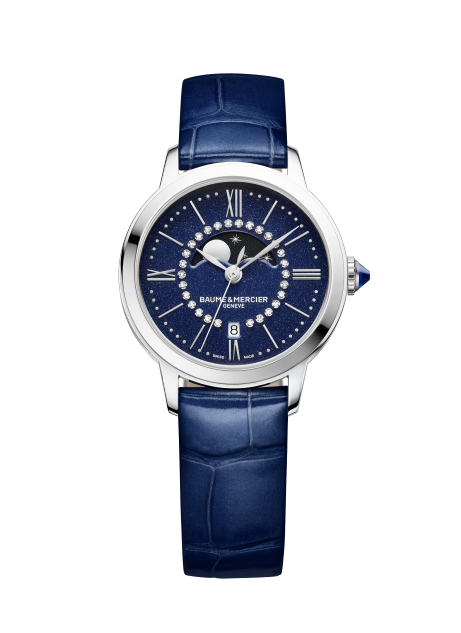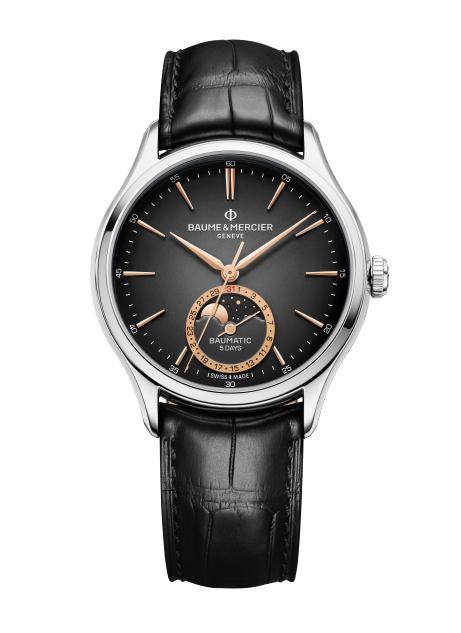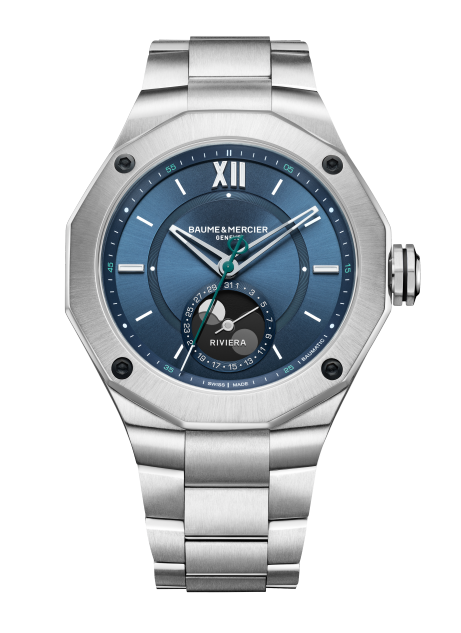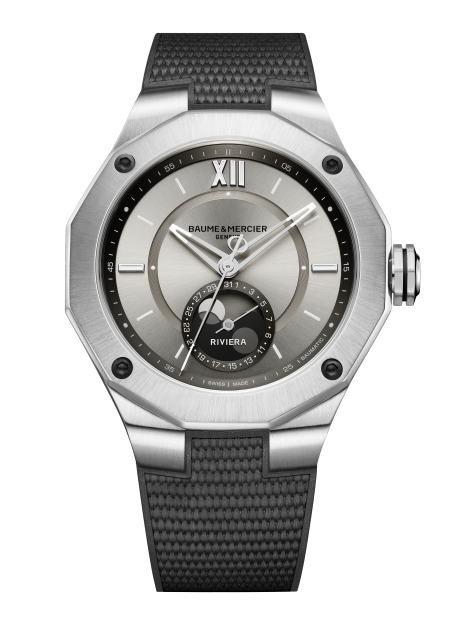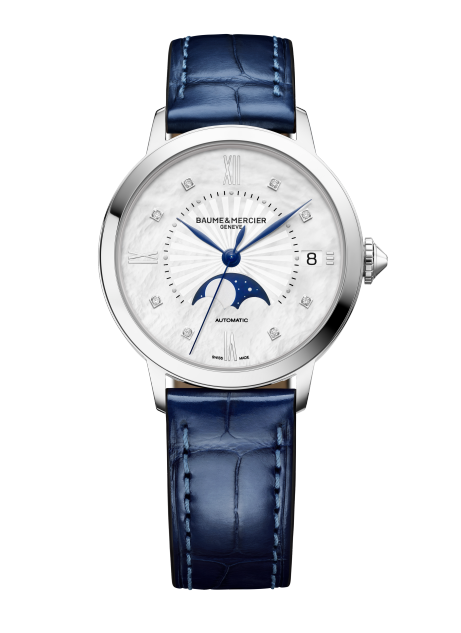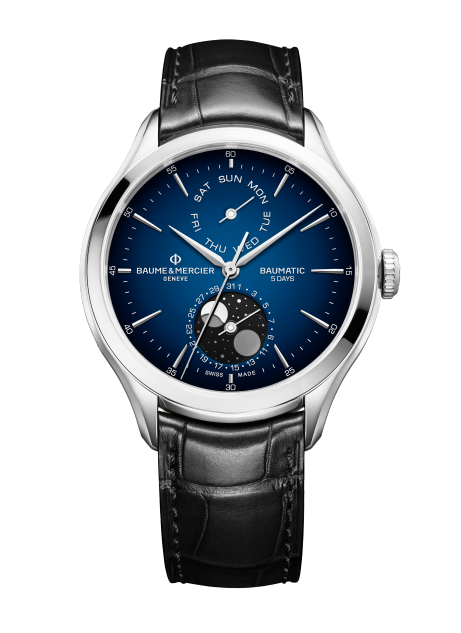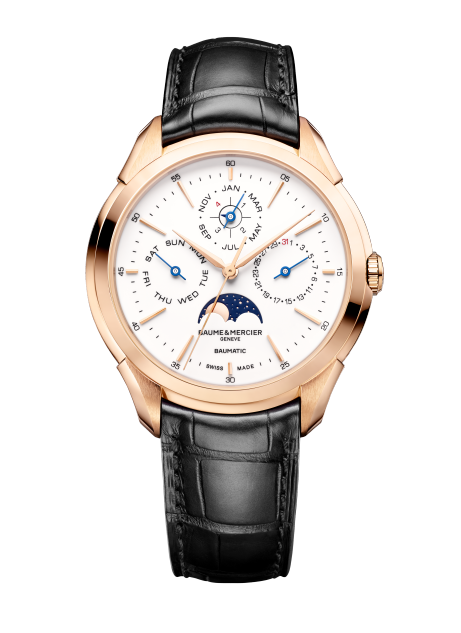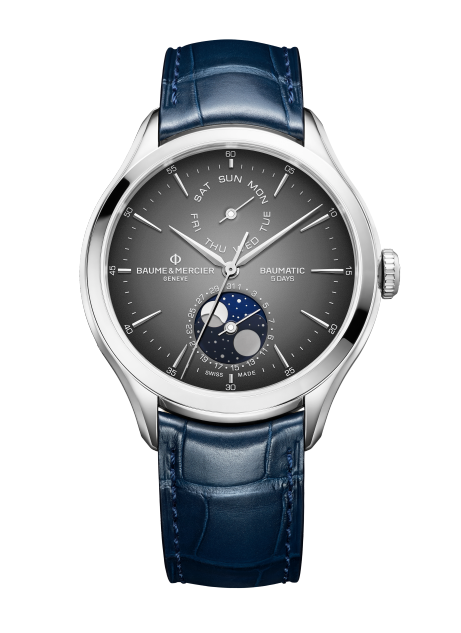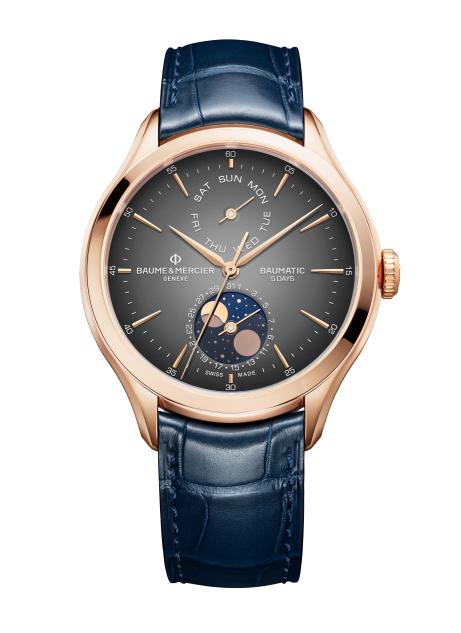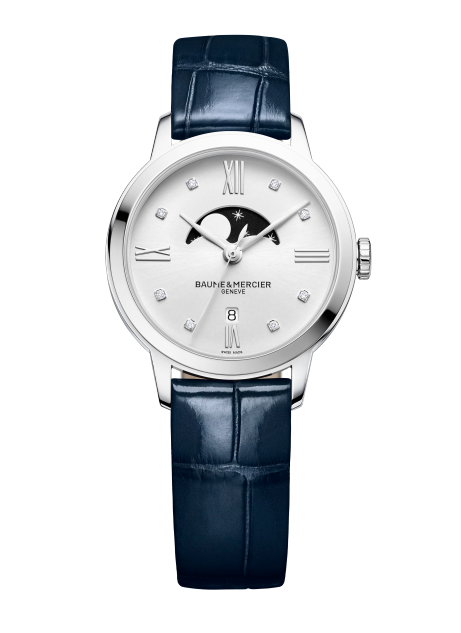
MOON PHASE WATCHES
The moon phase indicator is a timeless complication, spanning centuries and always eliciting the same fascination. Telling time has always depended on observing the movements of the sun and moon. While we no longer use the moon phases on a watch to tell time, their poetry makes them into coveted art pieces.
What is a moon phase watch?
A moon phase watch displays the current phase of the moon on its dial. More aesthetic than practical, the moon phase indicator is poetic. It elevates, inviting transcendence.
For centuries, watchmakers have set themselves to developing moon phase movements, tirelessly studying every aspect of time. Dating from 205 BC, the Antikythera mechanism is the oldest known instrument for tracking moon phases. It indicated the moon’s position, the planets that were known at the time, and the dates of the next Olympic games. More than a thousand years later, the first astronomical clocks, richly decorated and incredibly complex, included the moon phase with the position of the planets.
Traditionally, the moon phase indicator has been reserved for the most sophisticated clocks and watches. Today, it remains emblematic of luxury and a high level of expertise.
Types of moon phase watches
Over the course of many years, the moon phase indicator has completely changed its shape. Initially, it was depicted as a moon face with red cheeks, while today, it takes on countless forms in Swiss fine watchmaking creations.
The moon phase indicator usually complements the perpetual calendar. For example, the Clifton 10756 is a men’s self-winding model featuring a golden moon phase disc with small seconds, day and date functions. The moon phase indicator can also be a central element of the dial, as on the Promesse 10347. This women’s quartz moon phase model comes with a blue dial set with diamonds, evoking a starry night sky.
The moon phase indicator is available in many different styles and generally appears as a moving disc or, more rarely, a hand. With moving discs, the moon phase is visible through an aperture in the dial. This is the system used in the Classima 10633, for example, which is a women’s quartz moon phase watch featuring a dial set with diamonds. The hand-based system tracks a lunar month on a dial that features the different phases of the moon.
How does a moon phase watch work?
The movement of moon phase watches depends on the synodic month, which corresponds to the time between new moons, or one revolution of the Moon on its orbit between Earth and the Sun. A synodic month lasts exactly 29.53 days.
To power a moon phase movement, watchmakers use a small toothed wheel to make the moon phase disc turn. The wheel generally has 59 teeth, and on the disc there are two identical moons: one visible through the aperture and the other beneath the dial. The most precise moon phase watches have wheels with 135 teeth.
The wheel’s cycle starts with a mechanical finger that makes the disc advance one notch every 24 hours. The second moon moves at the same moment that the wheel advances the lunar cycle. The 59 notches correspond to two lunar cycles (29.5 notches x 2).
How to adjust a moon phase watch?
Because a lunar month lasts a little more than 29.5 days, a moon phase movement with a 59-tooth wheel should be adjusted approximately every three years. The watch may also need to be adjusted when purchased.
The setting is done using an invisible button on the side of the case. Using a special adjustment tool so as not to scratch the case, press the button until the current moon phase appears.
Baume & Mercier moon phase watches are extremely precise and rarely need to be set more than once.
How to wear your moon phase watch?
Reminiscent of the traditional watchmaking practiced in Europe in the 18th and 19th centuries, moon phase watches have a retro and romantic style prized by watch collectors and enthusiasts.
From the stunning women’s moon phase watches in the Classima collection to the elegant sophistication of our self-winding men’s chronographs, Baume & Mercier offers moon phase watches for every taste. Shop our men’s and women’s moon phase watch collection now.
